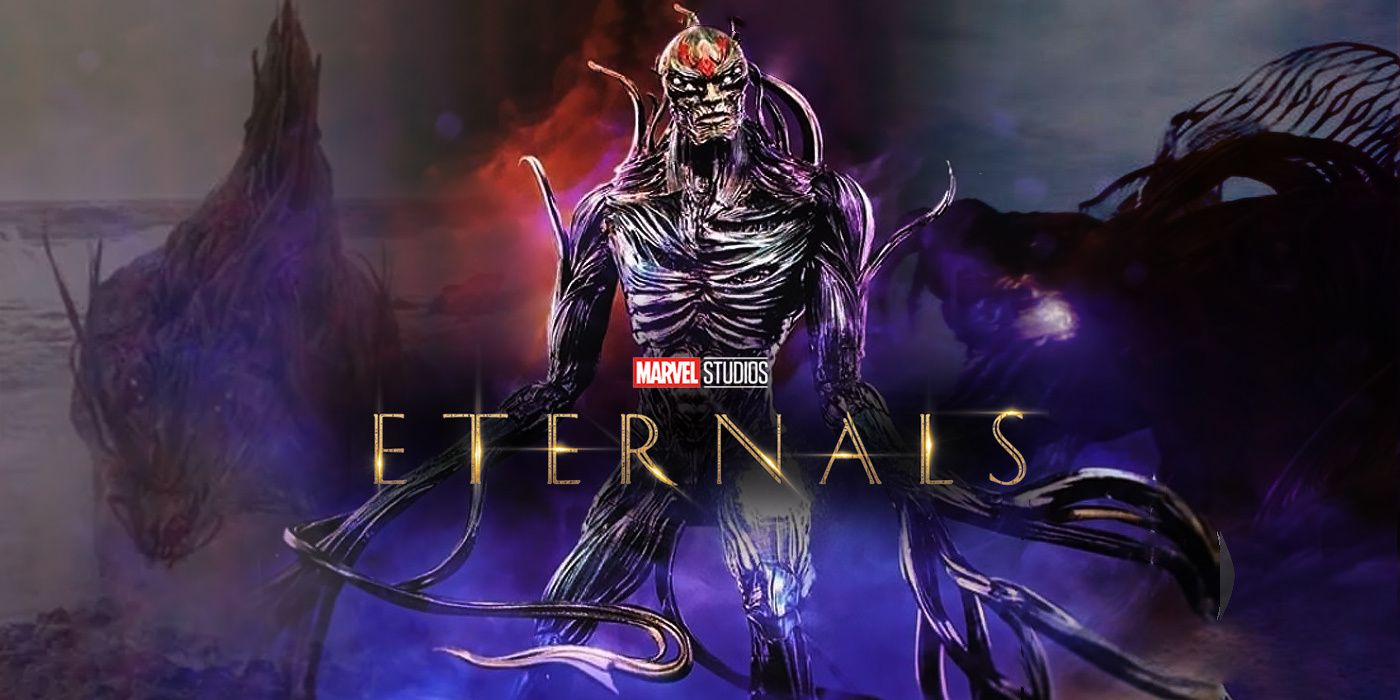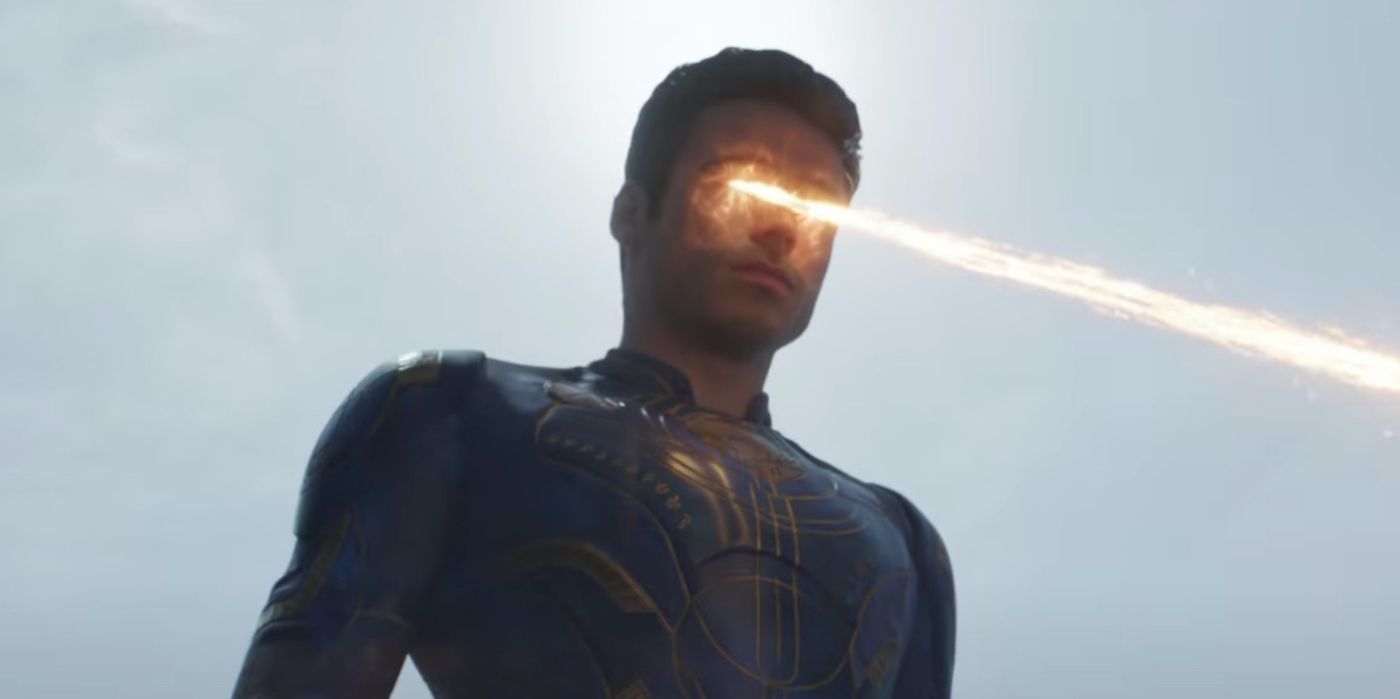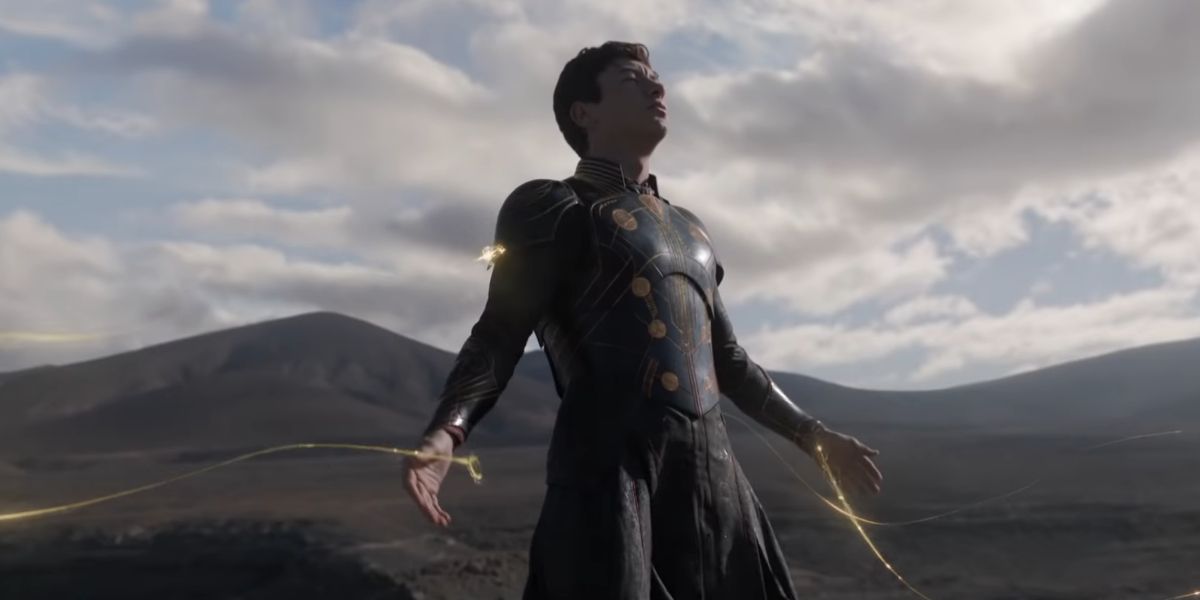[Editor’s Note: This article contains spoilers for Eternals]
Aside from Guardians of the Galaxy, Marvel’s Eternals is one of the first movies in the MCU to begin exploring the galactic scale of the MCU. While the Celestials, the most powerful beings in the universe, have been introduced previously, Eternals is the first to truly delve into their role in the galaxy, revealing that they’re responsible for birthing stars. One of the movie's biggest twists was the reveal that the birth of a Celestial requires the destruction of a planet filled with sentient life and the Eternals were sent to Earth to battle the Deviants to prepare the planet for eventual destruction rather than save the world as they had believed.
Initially, the film portrayed the Deviants as the primary villains, both in marketing and the movie's start. Ultimately, however, they became a side accessory to the main story about the Eternals battling each other and trying to stop the Celestial birth that would destroy the Earth. In the end, they were more of a hindrance to the story as the Deviants became thematically muddled without a clear place in a story about struggles with one life over many and what it means to fight for a just cause.
The beginning of the story portrays Deviants as highly dangerous, alien predators that preyed on early human settlements. The Eternals came to Earth at the behest of the Celestial Arishem to kill the Deviants and help cultivate humanity to realize their full potential. Arishem later revealed that the Deviants were his first attempt at lifeforms that would help intelligent life grow to feed the Celestials. But they evolved to begin preying on intelligent life so that they could survive, as the Deviants would be destroyed along with everything else when the Celestial emerged.
In the movie, the Deviants proved capable of evolving more than Arishem had intended. By killing the Eternals and absorbing their cosmic energy, one of them, called Kro, gained a humanoid form and sentience. Kro used this to condemn the Eternals for hunting his people to the brink of extinction. But after this moment in the film’s midpoint, despite being the driving force of the story that began bringing the Eternals together after centuries, Kro’s eventual death at Thena’s hands in the final act feels like a rejection of any importance he might have had otherwise.
The crux of the Eternals’ story is weighing the value of a few lives over the many. If the Celestial inside the Earth emerged, it would annihilate the planet and all of humanity along with it. But that Celestial would go on to ignite stars and spin galaxies into existence, setting the foundation for countless billions of intelligent lives to grow and develop, but at Earth’s expense. After living on Earth for centuries, most of the Eternals choose to save the developed life on Earth over the billions of possible lives the Emergence would create - though Ikaris and Sprite fought their brethren and Kingo abstained entirely, despite believing the Emergence should happen.
The confusion with Kro’s death comes from the Eternals’ willingness to save humanity from the Celestials while driving the Deviants extinct. For all their goodwill in trying to protect the unaware humans from Arishem’s machinations, the Deviants are equally victims of his plans - if not more so, as Arishem created the Deviants then branded them failures, creating an entire race solely to exterminate them. The only reason Kro and a handful of his people lived so long was because they were frozen in ice near the Arctic, beyond the Eternals’ reach. The Deviants had always done as Arishem needed, killing off predators so intelligent life had time to flourish and feed the Celestial seeds. Once the Deviants started prioritizing their existence, the Eternals were created in the World Forge to kill them.
For much of their history, the Deviants were killing intelligent life - but only for their own existence. They were hunters without the intelligence of races like humans, animals feeding off instinct. Kro appears to be the first to reach a high-functioning level of intelligence and sentience, likely the first of his kind capable of overriding his base instincts, which was shown by how he only hunted the Eternals instead of humans this time. This intelligence came at a great cost to the Eternals. Two of them, Ajax and Gilgamesh, had to die and get absorbed for Kro to advance. But one could argue this cost is not dissimilar to humanity’s growth at the expense of the Deviants.
The atrocities Kro inflicted upon the Enterals weren’t any lesser than those humanity did to themselves, yet they still saw them as worthy of protection. The Deviants seem an even more vulnerable race, given that only one of them gained true sentience, but the Eternals didn’t care to be as forgiving, despite them giving humanity a second chance. It’s possible this prejudice was meant to portray a more human side to the synthetic Eternals, as one of the story’s major themes is that humanity is defined by its flaws as much as its strengths.
There’s also the possibility that Kro’s unceremonious death at the end of the story was little more than an afterthought, that his purpose had been exhausted, and he became a loose end that needed to be tied up. Whether or not the Deviants should have been forgiven is debatable - can you blame a lion for attacking a zebra? But the fact that there was never a chance given makes them a rough undercurrent to the story's themes. It’s hard for the story to say that intelligent life should be developed and given a chance to survive, especially those directly harmed in Arishem’s grand plans for the birth of Celestials. The Deviants are no less victims of the callous nature the universe is maintained, but they’re treated as a minor distraction that gets the ball rolling, sets the stage for the Eternals’ reunion, and were quickly discarded once their use was up.



